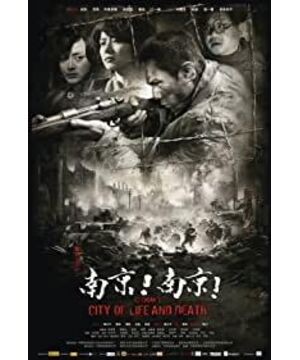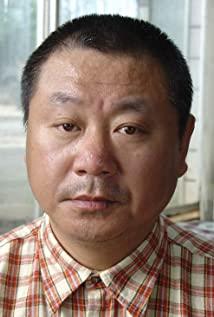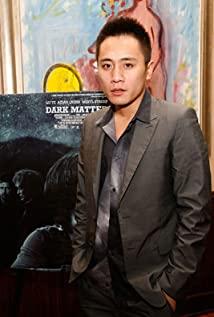After watching the movie in the cinema, except that I sat a little too close at first and was a little disgusted by the shaky war camera (later changed to the back row, it was much better), there was no such thing as the kind of angrily leaving the scene mentioned in many comments. impulse. However, in all fairness, I can't say that Director Lu has reached the heights I expected.
The first is the fragmentation of the plot. This does not seem to be a movie, but a collection of clips from different movies. The previous war scene is the Chinese version of "Saving Private Ryan". Except that the Japanese army is necessary to siege the city, the rest is only visual stimuli. As soon as the battle was over, the national army played by Liu Ye suddenly became a teaching tool for the director, a spiritual leader, a symbol calling on everyone to shout slogans. I deeply doubt that in the chaotic army of that year, on the banks of the blood-stained Yangtze River, whether someone was shouting "Long live China, China will not die", I want to shout this in front of the cruel Japanese machine guns It's better to shout "mother" to be credible and move people.
After the slogan was shouted, I went directly to the story of "Rabe". There was no blood-stained river, and there was no crying in Xiaguan. There was only the refugee camp of "Rabe" left in Nanjing City. Schindler's List". I won't say much about the plot. Some people say that the film dwarfs Rabe's image, and some people say that it beautifies the Japanese army. In fact, these are not important. Unlike history books, what the film needs to give the audience is the authenticity of art and emotion. is the truth of human nature. Dwarfing, if it is necessary, it is acceptable, but this is not a problem of dwarfing anymore, but the characters are very vague, shallow, and noisy. Rabe has become a begging Japanese army, and the light will be lost. Little old man in tears.
Fan Wei's secretary, Gao Yuanyuan's teacher Jiang, and Jiang Yiyan's abusive woman, each is a paragraph, but to be honest, the relationship is too weak, each paragraph has been said, but it seems that each paragraph is not clear. The only one who runs through the whole play is the Japanese soldier Kadokawa, but he was defeated by the cruelty of the war, let go of the prisoners, and cut himself off from the emperor. Thinking with my feet, I don't think it's reliable. Is this the truth of human nature, or the truth in the mind of the director and screenwriter?
I almost forgot, there are still a lot of descriptions of comfort women in the movie, which can be completely independent. How close is this to the theme of the Nanjing Massacre? I don't need to say it.
I have not been a warmonger since I was a child, and I have not read many war books, but there is a plot in a certain book (forgot the title) that I remember very clearly, saying that when the People's Liberation Army attacked Tianjin, Fu Zuoyi asked Chen Changjie to fight it and try it out. The strength of the communist army, Chen guaranteed that Tianjin could defend for three months, and Lin Biao's siege period was three days. When the battle was fierce, the national army had no fortifications to rely on, so they used the bodies of the fallen soldiers as bunkers. Many "corpses" were actually still alive. At night, there was a lot of crying, and it became a weeping wall. To be honest, every time I think of this episode, I can't wait to kick the assholes who are clamoring to hit Japan and Taiwan. I still read a sentence from the book (there is another one, and I don’t remember the name), it is called “war degenerates people”. Cruel, bloody, and completely degenerate human nature, this is the reality of war. However, it is also in this reality that human nature can show great brilliance instead. The greatness of Rabe, the foreigners who fought so hard to protect refugees, is the representative of this humanity. I believe that there must have been a lot of things in Nanjing at that time that are worth writing about, but unfortunately there are not many in the movie. This is the responsibility of the screenwriter and director. No matter how hard an actor works, no matter how good they are, they can't do anything better.
Some people say that movies cannot be compared with each other, but I still compare, of course, with "Schindler's List". My expectation for Lu Chuan is that he can shoot such an epic and moving chapter. It's a pity I didn't see it, but it wasn't because someone criticized it, because Lu Chuan was too calm, so cold-blooded. I understand that the director wants to express the feeling of power with a calm perspective and a dilute narrative. The massacre itself is shocking enough, and there is no need to exaggerate, bloody, and sensational. But it is very regrettable that the dilution of this slogan has not achieved the expected effect; this is not because Lu Chuan is too objective, trying to tell the story from the perspective of the warring parties. In fact, the problem is that Lu Chuan has too many things to talk about, too many things he wants to educate, and too many conceptual things. Therefore, it is full of contradictions. He wants to take into account the large and small perspectives, the enemy and our side, the civilian soldiers, the Japanese women and Chinese women, the corruption of the Kuomintang army and war heroes. He wants to tell everyone that war is the cause of disaster, and everyone is a victim, but with so many things taken into consideration, it is inevitable to take care of one and the other. There are too many clues, too much chaos, everyone is a short story, the connection between the stories is reluctant and thin, and it is always unfinished, because there is not so much time and space for you to take care of it, after all, this is just a movie. In contrast, "Schindler's List", not only the details are credible, but also the characters are very full, writing about the experience of the family, writing about Schindler's ideological changes, and writing about the shamelessness of the German commander all make people feel that this is true. For example, there is a scene in Nanjing where the Japanese officer shot the "little girl" on the grounds that in such a beautiful woman, it would be better to die than to live. The same details of a woman who was shot and killed are also included in the "list". A Jewish female engineer shouted to the Nazi officer in the concentration camp that the foundation of the building was unreasonable, and that it would collapse. The Nazis ordered her to be shot, and then said that the foundation Just do as she said. Of the two plots, which one is reasonable, which one is credible, and which one contains more things, aside from the so-called political correctness factor, it is also obvious.
In "Nanjing", the characters are not people alienated by the war, but symbols, symbols that Lu Chuan instilled in everyone's ideas. His so-called objectiveness simplifies the characters' characters. What needs to be expressed, just add whatever , the so-called multi-angle description has become abrupt and dazed, and the audience is at a loss.
Criticized so much, but also praise and praise, in fact, the movie is not so bad, it is still worth watching, especially the music, very good. Just don't expect too much or the disappointment will be huge. Some people say that they don't watch this film because the subject matter is too heavy and they feel bad after watching it. In fact, I still hope that everyone will watch this film. Whether it is heavy or not, at least they should watch the Holocaust that it took us seventy years to reflect on. There are a lot of things we need to think about. Why even the Japanese army praised the well-equipped German army defending the city, but it took only 70,000 people to defeat the hundreds of thousands of national troops in three days. Although there are not many Japanese people I know, most of them are gentle, courteous and polite, more shrewd than fierce, but why would such a nation, under the frenzy of war, commit such monstrous crimes, and yet still plausibly?
We can’t just joke about history, we have to look back carefully, we can’t change our attitude at will because the political climate has changed, we always ask Japan to treat history correctly, have we treated it correctly ourselves, let’s not talk about it, more than 30 years have passed. During the Cultural Revolution, we ourselves have been alienated quite fiercely. Have we treated it correctly? It's certainly easy to put the blame on Japanese militarism, or Lin Biao, or a small group of the Gang of Four, but it's so simple, can everyone be so easy?
What is history, why do we need history, because history can tell us where we came from, who we are, and only by understanding history can we have the future. "Nanjing! Nanjing!" didn't really move me, because from inside, I couldn't see the real reflection of a nation, I couldn't see the real people, I couldn't see the Chinese, the Rabes were raped of great humanity. All I can say is that this was Nanjing that winter in Lu Chuan's mind, not mine. When I think of Nanjing in those days, and the innocent 300,000 dead, in addition to sadness and anger, I always feel a little bit of sadness.
View more about City of Life and Death reviews











